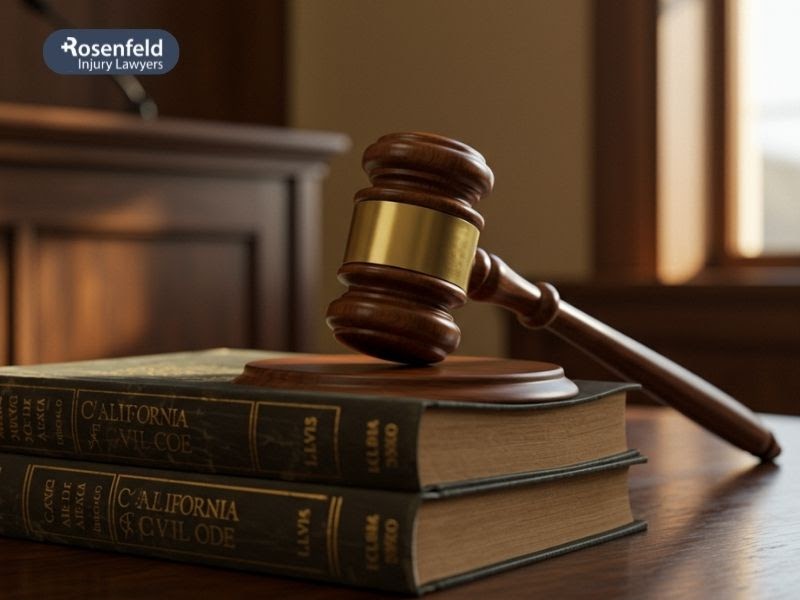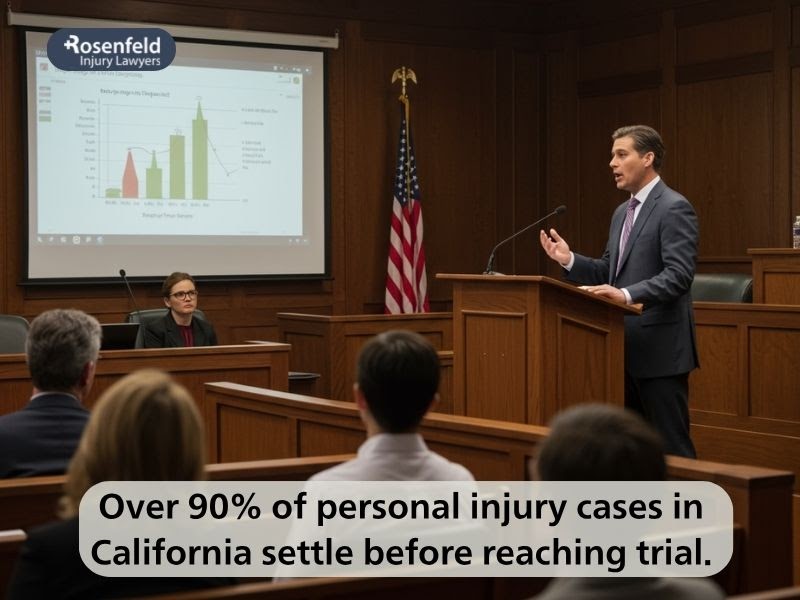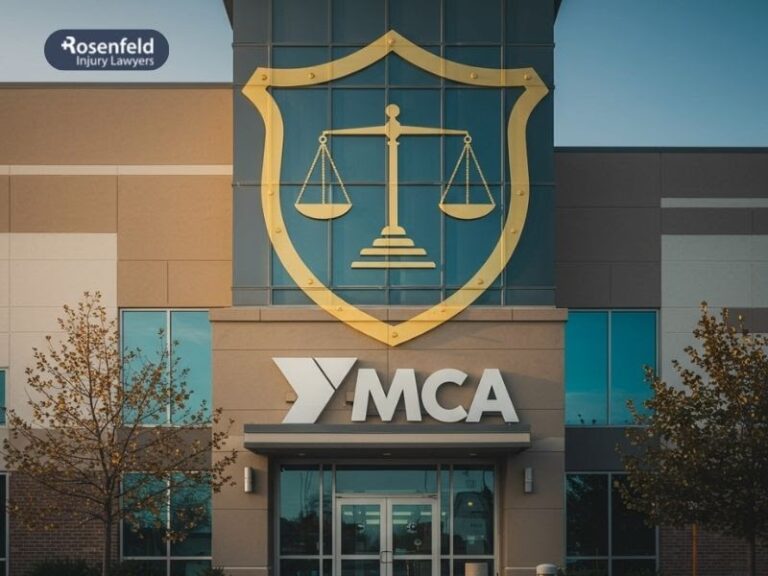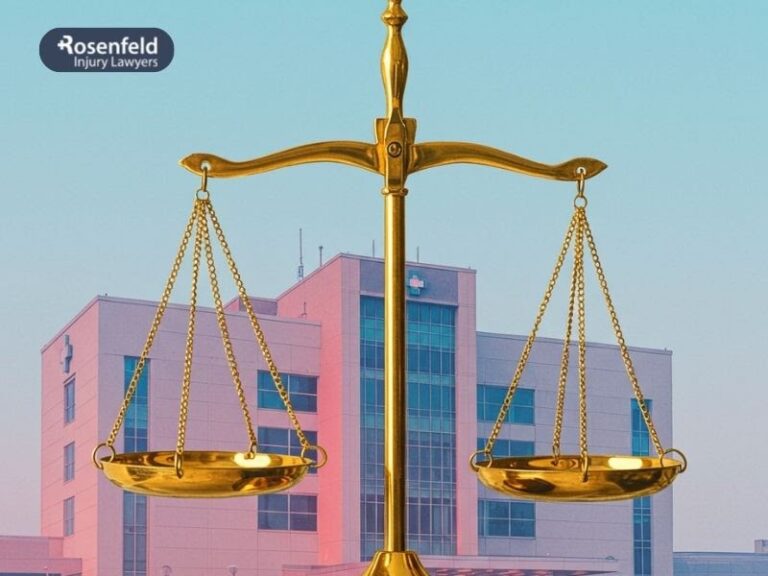Free Case Evaluation: 866-757-6452

Experienced Law Firm Helping California Victims of Sexual Assault and Abuse Seek Compensation
If you or a loved one is a survivor of sexual abuse, the Injury Lawyer Team is here to help you take legal action and seek the justice you deserve. Filing a California sexual abuse lawsuit can be a powerful step toward holding abusers and negligent institutions accountable, whether the abuse occurred in a school, church, youth organization, or another setting.
Our attorneys understand the trauma survivors face and work with compassion and determination to help clients pursue compensation through civil court, even when criminal charges have not been filed. Contact us for a free consultation!
Recent Updates on Sexual Abuse Lawsuits in California
June 2, 2025 – 2,188 Uber Sexual Assault Lawsuits
Sexual assault victims have come forward with allegations against Uber Technologies, Inc., claiming they were sexually assaulted by drivers using the ride-hailing platform. These sexual abuse claims involve women and men across the country, and a significant number of these lawsuits have been filed by survivors in California.
In response to the growing number of cases, the U.S. Judicial Panel on Multidistrict Litigation created MDL No. 3084, consolidating dozens of individual lawsuits into a single proceeding in the Northern District of California.
At the time the transfer order was issued in 2023, at least 57 related actions had been identified. As of June 2, 2025, there are 2,188 actions in the MDL.
The passenger sexual assault litigation focuses on systemic failures by Uber to prevent non-consensual acts, including a lack of proper driver background checks, failure to respond to complaints, and ineffective safety protocols.
Survivors allege they were sexually abused while using Uber’s platform and that the company failed to act on known risks, allowing sexual predators to operate unchecked. These cases do not only involve emotional distress and psychological injury, but in many instances, physical harm and lasting trauma.
The centralized civil lawsuit process streamlines pre-trial actions for these complex sexual assault cases, helping survivors pursue compensation in civil court, even if no criminal charges have been filed. Many of these lawsuits also invoke California law, where Uber is headquartered, and where many sexual assault survivors have filed to seek justice.
Survivors who were sexually assaulted by Uber drivers in California — or who live in California but were assaulted elsewhere — are still eligible to file a lawsuit.
May 30, 2025 – Zion Williamson Sued in California Over Alleged Sexual Assault and Abuse
In a recent filing with Los Angeles Superior Court, a woman identified as Jane Doe filed a civil lawsuit against NBA player Zion Williamson, accusing him of rape, emotional abuse, physical violence, and financial control during a multiyear relationship that allegedly spanned from 2018 to 2023.
While the relationship began during Williamson’s time at Duke University, the lawsuit focuses on two incidents of alleged sexual assault that occurred in California in 2020.
According to the 12-page complaint, the first alleged rape took place in September 2020 in Beverly Hills, after the plaintiff told Williamson she was tired and wanted to sleep. The filing claims he refused, restrained her with his hands behind her back, raped her, threw her phone across the room, and then choked her.
A second alleged sexual assault occurred in October 2020, also in Beverly Hills, following an argument about her plans to visit a friend. In both incidents, Doe claims Williamson took her phone and acted with aggression.
Beyond the sexual assault claims, the lawsuit alleges Williamson committed acts of strangulation, threatened to kill the plaintiff and her family, and entered her apartment without consent, stealing personal items. The plaintiff is seeking monetary and punitive damages for emotional distress, reportedly in the range of $18 million to $50 million.
Williamson’s legal team has publicly denied all allegations, characterizing the lawsuit as “false and reckless,” and describing the relationship as consensual and casual. His attorneys also claim the complaint is part of an attempted extortion, and that Williamson plans to file a counterclaim.
May 20, 2025 – High School Sued Over Longstanding Sexual Abuse Allegations
A woman identified as Jane Roe has filed a civil lawsuit in Van Nuys Superior Court against Notre Dame High School in Sherman Oaks and the Congregation of the Holy Cross, the Catholic order that runs the school.
The complaint alleges that Roe was sexually abused by a male classmate during the 2000–2001 school year and that school officials were indifferent to her repeated reports because the alleged perpetrator was a “star student athlete.”
The lawsuit accuses the school and the religious order of negligence, failure to warn, and intentional infliction of emotional distress. Roe claims the abuse was “recurrent and prolific,” describing inappropriate sexual contact during band practices and other unsupervised school activities.
According to the filing, the administration failed to take action even after learning that the same male student had allegedly assaulted another girl off-campus, an incident that resulted in a restraining order.
The lawsuit also asserts that school staff gave preferential treatment to athletes, ignored formal complaints, and told Roe to “just avoid” the perpetrator. The plaintiff further claims that when she reported the abuse to a school employee, she was simply told to ask the student to stop, rather than being protected.
As a result of the school’s alleged inaction, Roe says the perpetrator escalated his behavior, resulting in further mental anguish, psychological deterioration, and loss of income in adulthood. She is seeking unspecified damages and legal fees, joining a growing number of childhood sexual assault victims pursuing claims under California law.

May 19, 2025 – Boy Scouts of America Settlement Trust Hits 50% Claim Review Milestone
The Boy Scouts of America Scouting Settlement Trust has reviewed over 29,000 of the 58,126 Matrix claims submitted by sexual assault victims, marking the halfway point in claim determinations.
To date, the Trust has disbursed $151 million to 21,234 survivors. With processing now averaging 850 claims per week, the Trust reports a significant acceleration in review speed since claim submission deadlines passed.
The Trust was established as part of BSA’s bankruptcy reorganization and is backed by a historic $2.4 billion fund, one of the largest sexual abuse settlements ever created in the U.S. It aims to compensate tens of thousands of abuse survivors.
In addition to Matrix claims, the Trust is actively processing cases under the Independent Review Option (IRO). Hearings have been held for 212 survivors, with 71 settlement recommendations submitted by assigned neutrals and 49 already accepted.
The Trust continues to evaluate remaining recommendations and anticipates further progress in the months ahead.
April 29, 2025 – Los Angeles County Juvenile Facility and Foster Care Abuse
More than 6,800 sex abuse claims have been filed against Los Angeles County involving alleged abuse of minors in juvenile detention centers and the foster care system, with incidents dating back to the 1950s.
In response to this growing wave of litigation, the LA County Board of Supervisors recently approved a record $4 billion settlement.
The lawsuits stem from widespread reports of childhood sexual assault at multiple Probation Department-run juvenile halls. Many survivors allege they were sexually assaulted by staff or other minors while under county supervision, with abuse often going unreported or ignored for decades.
This landmark agreement follows a broader pattern in California, where child sexual abuse survivors are increasingly turning to the courts to seek justice against both public and private institutions that failed to protect them.
April 7, 2025 – LDS Church Faces Nearly 100 Sexual Abuse Lawsuits Across California
A wave of sexual abuse lawsuits—nearly 100 in total—has been filed across California against the Church of Jesus Christ of Latter-day Saints (LDS Church).
These civil cases, coordinated under a Judicial Council Coordination Proceeding in Los Angeles County, include survivors from 26 counties, with cases spanning alleged abuse incidents from the 1980s through the early 2000s.
One of the most detailed complaints, filed in Stanislaus County, describes a woman (referred to as Jane Doe) who alleges she was sexually abused as a child between the ages of 6 and 12 at Mormon church locations in Hayward and later Modesto.
According to the civil filing, the abuse began in 1989 when Doe was approached by a teenage deacon during Sunday classes. The lawsuit claims the abuse escalated over time to include forced sexual acts, including oral sex and rape, allegedly occurring repeatedly over several years without intervention from church leaders.
When Doe’s family moved to Modesto in 1994, the abuse allegedly continued at a local LDS church and included a separate perpetrator — reportedly the son of a local bishop — who is accused of sexually assaulting Doe during a church sleepover and in subsequent incidents.
The lawsuit asserts that both perpetrators acted with impunity and that church leaders failed to protect children despite knowledge of the abuse.
The broader coordinated litigation alleges a systemic cover-up within the LDS Church, claiming church leadership used its financial and institutional power to suppress sexual abuse reports. Plaintiffs argue that a confidential internal helpline, promoted by the church as a reporting tool, was actually operated by attorneys and used to limit legal exposure.
The church denies the allegations, stating it has always complied with reporting laws and provides support to victims through counseling and other resources.
In court, attorneys for the plaintiffs have argued that centralizing these sexual assault claims in California’s state court system would streamline proceedings, while the LDS Church attempted to move them to federal court, a tactic plaintiffs say would delay justice and burden survivors.
The litigation remains ongoing, with dozens of survivors continuing to pursue legal action under California law to expose past abuse and hold the LDS Church accountable.
February 6, 2025 – Class-Action Lawsuit Filed Over Sexual Abuse at California Women’s Prison
Six women filed a federal class-action lawsuit against Dr. Scott Lee, a former OB-GYN at the California Institution for Women (CIW) in Chino.
The complaint alleges that Lee subjected incarcerated women to years of sexual abuse, coercive medical procedures, and retaliation for speaking out. The claims span from 2016 to 2023, during which Lee was reportedly the sole gynecologist on staff.
According to the 93-page complaint, Lee digitally penetrated patients without consent, made repeated sexually inappropriate comments, restrained women during exams, and used invasive procedures as a form of abuse.
Some women reported being forced to choose between receiving gynecological care and enduring ongoing sexual misconduct. Attorneys allege the California Department of Corrections and Rehabilitation (CDCR) ignored years of warnings and complaints, allowing Lee to continue treating patients despite serious allegations.
One plaintiff, identified as Jane Doe 4, describes an incident in 2023 when she was seven months pregnant. She alleges Lee refused to leave the exam room, fondled her without explanation, and digitally assaulted her, causing bleeding that persisted for days.
Other plaintiffs detail similar patterns of sexual assault, intimidation, and psychological harm, including being denied medical supplies or threatened with housing retaliation if they refused further care.
The lawsuit also references earlier reports made to the Medical Board of California and prior complaints dating back to 2017, including claims that Lee mutilated a woman’s genitals during an unnecessary biopsy.
Despite this, the lawsuit alleges the prison system failed to intervene, enabling a pattern of abuse against vulnerable women, many of whom were already child sexual abuse victims or had experienced domestic violence before incarceration.
The case is being pursued as a class action, representing potentially hundreds or thousands of women who were held at CIW and subjected to similar mistreatment. The plaintiffs are seeking compensation for psychological trauma, physical injuries, and systemic civil rights violations under California and federal law.
Attorneys and advocates say the case only came to light due to the organizing efforts of incarcerated women, who documented patterns of abuse by speaking with fellow survivors. The California Coalition for Women Prisoners is also named as a co-plaintiff.
What Constitutes Sexual Abuse and Assault Under California Law?
In California, sexual abuse and sexual assault are defined differently in criminal and civil law, and it’s important for survivors to understand how those distinctions affect their legal options.
While criminal statutes—such as Penal Code § 261 (rape), § 243.4 (sexual battery), and § 288 (lewd acts with a minor)—lay out what qualifies as a sex crime and guide prosecutions by the state, civil law takes a different approach.
In the civil system, the focus is not on punishing the offender with jail time, but on holding them—or the institutions that enabled them—financially accountable for the harm they caused.
Under California Civil Code § 1708.5, sexual battery is defined as any non-consensual sexual contact committed for sexual gratification, arousal, or abuse. This law allows survivors to file civil lawsuits against individuals who assaulted them, even if the accused was never charged or convicted in criminal court.
Civil cases may also include claims for sexual harassment, negligence, emotional suffering, and failure to protect, especially when the assault occurred in institutional settings like schools, religious organizations, detention facilities, or foster care systems.
One of the most important differences between criminal and civil proceedings is the burden of proof. In a criminal trial, the prosecution must prove guilt “beyond a reasonable doubt.” In civil court, a survivor only needs to show that it’s “more likely than not” that the abuse occurred—a standard known as the preponderance of the evidence.
This lower threshold means that many survivors are able to seek justice through civil lawsuits even when criminal prosecution isn’t possible or has failed.
For survivors, pursuing a California sexual assault lawsuit through civil court offers a path not only to seek compensation for the pain and trauma they’ve endured but also to expose wrongdoing and prevent future harm.
Civil cases can hold both individual abusers and negligent institutions accountable, providing recognition, closure, and tangible support for rebuilding a survivor’s life.
How to File a Civil Sexual Abuse Lawsuit in California
Victims of sexual assault in California have the right to file a civil lawsuit regardless of how long ago the assault occurred or whether any criminal case was ever pursued. These lawsuits are not about proving guilt beyond a reasonable doubt, but about seeking accountability and compensation through the civil court system.
Survivors may be eligible to recover damages for mental suffering, psychological trauma, medical treatment, lost income, and other harm caused by the abuse.
To begin the process, a survivor—or their attorney—must file a formal complaint in civil court, outlining the nature of the abuse and identifying the responsible parties.
In many cases, survivors can also file claims against third parties, such as schools, churches, healthcare providers, or employers, if those institutions failed to properly screen, supervise, or protect the victim from known risks. This is often referred to as vicarious liability or institutional negligence.
Unlike criminal cases, a civil lawsuit can move forward based solely on the survivor’s sworn statement, supported by available evidence such as therapy records, journal entries, correspondence, or witness accounts. Even when no physical evidence is available, credible testimony may be enough to meet the civil standard of proof.
California law also provides strong privacy protections for survivors taking legal action. Victims can often file under a pseudonym (such as “Jane Doe” or using initials), and courts may issue protective orders to shield sensitive information.
In addition, attorneys handling sexual abuse lawsuits are required to follow trauma-informed practices and can request courtroom accommodations when needed.
Importantly, survivors should not assume they’ve run out of time to file. California’s statute of limitations for sexual abuse claims has been significantly expanded in recent years, especially for survivors of childhood sexual abuse, who may have until age 40—or even longer under certain discovery rules—to file suit.
Adults who experienced abuse as minors may also qualify under the delayed discovery doctrine, which allows claims to proceed if the survivor only recently connected the abuse to later psychological harm.
Every survivor’s situation is unique. A qualified California sexual abuse attorney can help assess whether a civil lawsuit is possible, what types of damages may be available, and which parties can be held accountable.
How Long Do I Have to File a Sexual Abuse Lawsuit in California?
California has enacted some of the most survivor-supportive statute of limitations laws in the country, especially for those pursuing civil lawsuits for sexual abuse. While the legal system recognizes that trauma can delay disclosure, there are still important deadlines survivors need to be aware of—some more flexible than others, depending on the situation.
Childhood Sexual Abuse Victims
Under California Code of Civil Procedure § 340.1, survivors of childhood sexual abuse can file a civil lawsuit until they turn 40, or within five years of discovering that psychological injury resulted from the abuse—whichever period is longer.
This delayed discovery rule acknowledges that many survivors don’t fully recognize the long-term effects of abuse until adulthood, often decades later.
In 2019, California passed Assembly Bill 218, which created a special three-year lookback window for survivors whose claims were previously time-barred.
Between January 1, 2020, and December 31, 2022, individuals could file lawsuits regardless of how long ago the assault occurred. Though the window has since closed, lawsuits filed during that time remain active and continue to move through the courts.
Adult Victims of Sexual Assault
California Code of Civil Procedure § 340.16 provides a separate time limit for adult survivors. They generally have ten years from the date of the assault, or three years from the date they discover a psychological or emotional injury connected to the abuse, whichever comes later.
This rule is especially important in cases where trauma symptoms such as PTSD, anxiety, or depression surface long after the incident.
Claims Involving Public Entities
When the assault occurred in a public institution, such as a public school, county-run juvenile facility, or foster care program administered by the state, different rules apply under the California Government Claims Act.
In these cases, survivors must first file a government tort claim within six months of the incident or from the date they reasonably discovered the harm. If the government denies the claim, the survivor then has six months from the date of rejection to file a lawsuit in civil court.
These procedural steps are strict, and missing one can result in a claim being dismissed. While courts may grant extensions for minors or in situations involving mental health barriers, survivors pursuing claims against government agencies should act quickly and consult with an attorney familiar with public entity abuse cases.
Delayed Discovery and Tolling Exceptions
California recognizes that trauma can prevent survivors from immediately coming forward. The state’s delayed discovery rule allows the statute of limitations to start when the survivor first realizes or should have realized that the abuse caused lasting harm. This is often supported by mental health evaluations, therapy records, or expert testimony.
In addition to delayed discovery, the court may “toll” or pause the time limit in certain cases, such as when the survivor was mentally incapacitated, coerced into silence, or when the abuser (or institution) actively concealed the abuse. These tolling exceptions can extend the filing period even further.
Civil vs. Criminal Charges
It’s also important to understand that civil and criminal statutes of limitations are entirely separate. Civil lawsuits seek monetary damages and accountability, while criminal cases are prosecuted by the state and aim to punish the offender.
In California, some serious sex crimes—including rape and aggravated sexual assault of a child—have no statute of limitations under Penal Code § 799, meaning charges can be filed at any time. But civil deadlines still apply, so even if they file criminal charges against the abuser, survivors must file their lawsuit within the civil timeframe to pursue financial compensation.
Protecting Your Right to File a Civil Lawsuit
Because California’s sexual abuse laws are complex and highly fact-dependent, survivors should not assume they’ve missed their chance to take legal action. Consulting a California sexual abuse attorney is the best way to evaluate your options.
A legal professional can determine how these laws apply to your specific situation, assess whether any exceptions or tolling rules may apply, and help you move forward within the time allowed.
What Is the Average Settlement in California Sexual Assault Lawsuits?
The average payout in California sexual assault lawsuits is approximately $5.2 million. However, this figure is skewed by a small number of exceptionally high payouts, including cases involving major institutions like the Catholic Church, Boy Scouts of America, and Los Angeles County.
To get a more realistic picture, it’s helpful to look at the median value, which is around $1.38 million. This suggests that while some survivors receive multi-million-dollar awards, many cases fall below that range, depending on the details.
The overall value range for California sexual assault lawsuit payouts spans from as low as $10,921 to as high as $135 million.
Notable California Sexual Assault Lawsuit Settlements & Verdicts
Organization Knew of Child’s Abuse by Stepfather
Between 1987 and 1997, a California woman (identified as Jane Doe) was sexually abused by her stepfather, Steven Fitzgerald, starting when she was just five years old.
Both Doe and her family were members of the Church of Jesus Christ of Latter-day Saints, where she claimed church leaders were repeatedly informed of the abuse but failed to act. Instead of protecting her, church officials allegedly encouraged silence and forgiveness.
Fitzgerald was eventually arrested in 1997 after Doe confided in her high school coach. He pleaded guilty to 55 counts of sexual abuse and was sentenced to three years in prison.
Years later, Doe filed a civil lawsuit against the Church, alleging negligent supervision. The case moved forward against Fitzgerald only after the Church denied wrongdoing and another defendant settled.
The jury found in favor of Doe and awarded her $2.28 billion — including $1.44 billion in punitive damages and $836 million for past and future emotional suffering. Expert testimony confirmed she experienced lasting trauma, including PTSD and depression, requiring lifelong care.
County Settles After Failing to Remove Children from Abusive Home
Six sisters sued Riverside County and several of its social workers after enduring years of sexual and physical abuse by their father. Despite multiple child abuse reports beginning in 2015, county officials dismissed the warnings and left the girls in the home.
Two sisters were sexually abused; one became pregnant at 17 and gave birth to her father’s child. The others faced ongoing physical abuse and neglect. In 2023, the county agreed to pay a $25 million settlement after being sued for violating mandated reporting laws and breaching its duty to protect.
Former School District Held Liable for Teacher’s Abuse
A group of former elementary school students filed a lawsuit against the Victor Elementary School District after being sexually abused by a teacher between 1990 and 2008.
The plaintiffs alleged the district failed to act on prior warnings and negligently supervised the teacher. Although the teacher defaulted in the case, the district denied liability and invoked statute of limitations defenses.
The parties ultimately reached a pre-trial settlement, with the school district and Joint Powers Association agreeing to pay $3.6 million. The case was dismissed with prejudice as part of the agreement.
Massage Clinic Settles After Therapist’s Criminal Conviction
A woman filed a sexual assault lawsuit after being inappropriately touched by a massage therapist at a spa in San Mateo. The therapist was later convicted of sexually battering three women, including the plaintiff.
She sued both the therapist and the spa for negligence and premises liability, arguing that the spa failed to protect clients despite prior misconduct by the employee. Although the spa denied knowledge of his past behavior and claimed to have followed proper hiring protocols, it ultimately agreed to settle the case for $200,000 before trial.
Daycare Provider and Son Held Liable for Child Sexual Abuse
A mother filed a lawsuit after her 4-year-old son began exhibiting signs of trauma while under the care of a licensed daycare provider. The provider had failed to disclose that her adult son—previously accused of molesting other children—was frequently present despite being barred from the premises.
The child later disclosed repeated abuse during therapy. The jury awarded the mother and son $1.5 million, including punitive damages, holding both the provider and her son liable. The case also helped inspire a California legislature change requiring better parental notification in similar settings.
Doctor Sexually Abused Elderly Patient During Exam
A 67-year-old woman filed a civil lawsuit after being sexually assaulted by a doctor during a medical exam in San Francisco. The physician was later criminally convicted of multiple charges, including sexual battery and attempting to dissuade the victim from reporting.
The civil case resulted in a judgment awarding the woman $500,000 in damages, plus attorney fees, for the physical and emotional harm she endured.
Hotel Held Liable After Staff Gave Rapist Unauthorized Room Access
A 28-year-old woman was sexually assaulted in a hotel room after an employee gave her attacker a room key without proper identification. The assailant impersonated the victim’s boyfriend to gain access while she was sleeping. He later pled guilty to rape and received a six-year prison sentence.
The victim sued both the hotel staff member and the hotel’s corporate operator for negligence. The jury found the hotel 60% liable for failing to follow safety protocols and awarded the plaintiff $3.5 million in damages, with $2.1 millionapportioned to the hotel defendants.
Hospital Found Liable After Physician Assistant Sexually Assaults Patient During Procedure
A 30-year-old family counselor was sexually assaulted by a hospital staff member during a routine outpatient procedure at a Southern California medical center. The patient reported loss of emotional well-being, career disruption, and long-term trauma following the incident. She alleged the hospital failed to respond appropriately to complaints and failed to protect patient safety.
A jury found the hospital liable for negligence and awarded the plaintiff $2.36 million in compensatory damages and $65 million in punitive damages, totaling more than $67 million.
L.A. County Settles Jail Sexual Abuse Case Involving Sheriff’s Deputy
Three incarcerated women alleged they were sexually assaulted by a sheriff’s deputy while held at a Los Angeles County jail. The plaintiffs claimed the assaults were followed by retaliation and that higher-ups failed to prevent or address the abuse.
The county settled the case for $1.7 million before trial, covering all named defendants, including the deputy, his supervisor, and the sheriff’s department.
City Settles Child Sexual Abuse Lawsuit Over Camp Sleepover for $725,000
A young girl alleged she was sexually assaulted by an adult male supervisor during a city-run overnight camping eventin Los Angeles. Her attorneys claimed the city failed to implement safeguards and placed her at foreseeable risk by assigning a single adult male to supervise the girls. Other victims later came forward with similar allegations.
The city denied wrongdoing, but the case was resolved through a $725,000 pre-trial settlement.
Which Factors Impact Compensation Amounts in Sexual Abuse Lawsuits?
No two sexual abuse lawsuits are exactly alike, and neither are the outcomes. In California, compensation amounts in civil sexual abuse cases can range from tens of thousands to millions of dollars.
This wide range exists because each case involves different facts, legal theories, and levels of harm. The following are the most common factors that influence the value of a settlement or verdict.
Severity and Duration of the Abuse
Cases involving long-term or repeated abuse—especially during childhood—often result in higher compensation. Courts recognize that prolonged trauma can have deeper psychological and emotional consequences, including PTSD, depression, anxiety, and long-term life disruption.
Age of the Victim at the Time of Abuse
When the abuse occurred during childhood or adolescence, compensation tends to be higher. California law offers extended legal protections and longer statutes of limitations for childhood sexual abuse survivors, recognizing the unique and lasting harm that early abuse can cause.
Psychological and Emotional Impact
The depth of emotional distress and psychological injury is often central to the case. Evidence such as therapy records, mental health diagnoses, or expert testimony from a mental health professional can significantly increase the value of a claim.
Physical Injuries and Medical Evidence
If the abuse resulted in physical injuries, required hospitalization, or involved invasive medical procedures, these tangible harms often raise the potential value of a lawsuit. Medical documentation—even years after the fact—can strongly support a survivor’s case.
Involvement of Institutions
When the abuse occurred in connection with an organization—such as a school district, church, youth organization, or state facility—the presence of institutional negligence can dramatically increase compensation. Courts may award additional damages when there is evidence that the institution failed to act on reports, ignored warning signs, or covered up prior misconduct.
Evidence of a Cover-Up or Pattern of Abuse
If the abuser had prior complaints or if the institution engaged in concealment, retaliation, or witness intimidation, this can lead to punitive damages on top of compensatory ones. Juries often award higher amounts when systemic wrongdoing is exposed.
Loss of Income or Earning Capacity
If the survivor’s ability to work, pursue education, or maintain employment has been impacted by the abuse, compensation may include damages for lost wages, diminished earning potential, or career disruption.
Willingness to Go to Trial
Many defendants are more likely to offer a higher settlement when a survivor is prepared to go to trial. If a case proceeds to verdict, juries often return larger awards, especially when testimony is compelling and institutional misconduct is clear.
How Our California Sexual Abuse Attorneys Can Help
Taking legal action after sexual abuse is an incredibly personal and often difficult decision. At Injury Lawyer Team, we understand the emotional weight survivors carry — and we’re here to support you every step of the way.
Our California sexual abuse attorneys focus on helping survivors pursue justice through the civil court system, holding both individuals and institutions accountable for the harm they caused.
When you work with our team, we start by listening. Every survivor’s story is different, and so is every case. We provide a safe, confidential space to discuss what happened and explain your legal options in plain language.
From there, we help determine whether you’re eligible to file a civil lawsuit under California law — even if the abuse occurred years ago or the abuser was never criminally charged.
We handle all aspects of the legal process, including investigating the abuse, identifying liable parties (including schools, churches, foster care agencies, or other institutions), collecting supporting evidence, and filing your claim within the appropriate time limits.
Throughout your case, we protect your privacy. In most sexual abuse lawsuits, survivors can file under a pseudonym (such as “Jane Doe”), and we take extra care to minimize public exposure or retraumatization. We also work closely with mental health professionals, medical experts, and investigators to build a strong, evidence-backed case that reflects the full impact of the abuse.
If you choose to move forward, we will advocate aggressively for the maximum possible compensation, including damages for emotional distress, medical treatment, loss of income, and in some cases, punitive damages against institutions that enabled or covered up the abuse.
Whether we reach a fair settlement or go to trial, our goal is to empower you to reclaim control, find closure, and secure the resources you need to heal.
Above all, we approach every case with respect, discretion, and trauma-informed care. You’ve carried this burden long enough — we’re here to help carry it with you.
Settlements Recovered by Our California Sexual Abuse Lawyers
$15,000,000 – Jordan and four other boys attended an elite prep school where their coach sexually abused them during after-school hours training sessions. Despite student complaints and several prior warnings, school officials failed to discipline or remove the coach, instead renewing his contract. The case settled for $15 million, driven by the number of victims, repeated institutional negligence, and expert testimony that the boys would suffer lasting psychological effects, including anxiety, dissociation, and trust issues tied to authority figures.
$6,500,000 – While on a family vacation, 16-year-old Kayla was sexually assaulted by a cruise staff member in a restricted service hallway. The cruise line was held liable for negligent hiring and inadequate security measures aboard the ship. The settlement reflected the long-term mental and physical consequences and the cruise company’s failure to act on prior red flags.
$5,000,000 – Andre and Luis, both adult men at the time of the lawsuit, had been patients of a licensed therapist who used “unconventional exercises” as a front for sexual and degrading assaults during sessions. The settlement reflected the breach of professional trust, compounded trauma, and the clinic’s failure to monitor a provider with a documented pattern of misconduct.
$2,000,000 – Marco was a volunteer at a large Catholic church when he was sexually assaulted by a maintenance worker in a church storage area. The assailant had previously been investigated for inappropriate behavior toward parishioners but was never removed from his position. The settlement acknowledged the church’s failure to protect congregants, particularly given prior incidents, and the permanent emotional harm sustained by Marco.
$1,900,000 – After being picked up from a concert, Celeste noticed her rideshare driver circling her apartment hours after drop-off. Days later, he ambushed her outside her building, pulling her into his car and violently assaulting her. The company failed to investigate earlier complaints about the driver’s stalking behavior from other riders. The settlement reflected the severity of her injuries, the rideshare platform’s lack of meaningful background checks, and its failure to respond to known safety risks.
How to Strengthen Your Civil Sexual Assault Case in California
If you’re considering filing a civil lawsuit for sexual assault in California, there are steps you can take that may help improve your chances of success, whether you’re just beginning to process what happened or you’re already speaking with a lawyer.
These aren’t legal requirements, but they can make a meaningful difference when it comes to proving liability, calculating damages, and building a compelling case.
Prioritize Your Safety First
Before anything else, get to a safe place — physically and emotionally. Whether that means confiding in someone you trust, leaving a harmful environment, or simply creating space to breathe, your well-being comes first. Once you’re safe, the sooner you begin documenting your experience, the more powerful your case may become.
Seek Medical Attention
Medical records can serve as strong evidence of both physical and psychological harm. If the abuse was recent, a forensic exam (ideally within 5 days) can help preserve DNA and document injuries.
But even months or years later, seeing a doctor, therapist, or trauma specialist can help document ongoing effects. These records often become key when calculating damages for pain and suffering.
Save Everything
Photos, texts, emails, journal entries, old calendars — anything that helps establish a timeline or pattern of behavior could be useful. Keep original clothing, screenshots, voicemails, or messages from the abuser if you have them. Don’t worry about organizing it perfectly — just preserve what you can. A good attorney will help piece it together.
Write Down What You Remember
Memory fades with time. If you’re able, write down (or record) what happened in your own words while it’s still relatively fresh. Include where, when, who else was around, and how it made you feel. Your own testimony is often one of the most important parts of a civil case — and it doesn’t have to be perfect, just honest.
Write down how the abuse has affected your relationships, work, sleep, health, and mental well-being. Civil damages are often based on emotional distress, therapy costs, and loss of quality of life — so the more detail you can provide, the more clearly your case shows the harm you’ve suffered.
Consider Reporting
You do not need a police report to file a civil lawsuit. But if you’re comfortable reporting, it may help establish a paper trail and show you took action. In California, there’s no statute of limitations on certain criminal offenses like rape and child molestation — but even if criminal charges are never filed, you may still have a strong civil case.
Talk to a California Sexual Assault Attorney
Even if you’re unsure about moving forward, it helps to speak with a lawyer who understands sexual assault cases. A qualified attorney can explain your options, help estimate potential compensation, and deal with any legal obstacles, such as statutes of limitations, institutional liability, or privacy concerns.
Keep It Confidential, But Don’t Isolate Yourself
You can file a lawsuit under a pseudonym (e.g. Jane Doe), and your lawyer can help keep your identity protected. But outside the legal process, find emotional support. A counselor, trusted friend, or survivor group can offer the kind of strength you’ll need to get through it.
Consult a California Sexual Abuse Attorney Near You!

If you or someone you love has experienced sexual assault in California, you don’t have to navigate the legal process alone. The Injury Lawyer Team is here to provide compassionate, confidential guidance and help you understand your rights.
Whether you’re ready to file a civil claim or just want to explore your options, our attorneys are available to listen and support you every step of the way. Call us today at (866) 757-6452 or send a confidential message through our online contact form.
We serve sexual assault victims throughout California, including:
San JoseWhether you’re ready to file a civil claim or just want to explore your options, our attorneys are available to listen and support you every step of the way. Call us today at (866) 757-6452 or send a confidential message through our online contact form.
We serve sexual assault victims throughout California, including:





![Illinois Catholic Diocese Priest Sexual Abuse List [387 Perps] illinois-catholic-diocese-priest-sexual-abuse-list](https://injurylawyerteam.com/wp-content/uploads/2025/05/illinois-catholic-diocese-priest-sexual-abuse-list-150x150.png)





